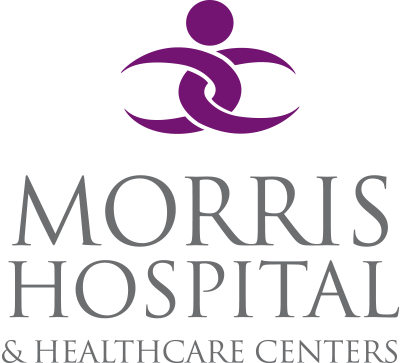How well do you know your health insurance coverage?
 While navigating the healthcare landscape can sometimes feel complicated, it can turn downright stressful if you don’t understand your health insurance plan. The key is taking time to learn how your individual health insurance plan works so you are prepared for out-of-pocket costs before the bill arrives.
While navigating the healthcare landscape can sometimes feel complicated, it can turn downright stressful if you don’t understand your health insurance plan. The key is taking time to learn how your individual health insurance plan works so you are prepared for out-of-pocket costs before the bill arrives.
According to Alex Blumenshine, Director of Patient Financial Services at Morris Hospital & Healthcare Centers, a good place to start is knowing your health insurance premium, deductible, co-insurance and out-of-pocket maximum specific to your health plan, as well as whether a provider you plan to use is in or out of your plan’s network. All of these factors will determine your level of coverage and how much you will end up contributing toward a particular appointment or procedure.
“When a patient gets a bill for several hundred dollars for lab work, they’re usually in shock because they thought their insurance would cover it,” explains Blumenshine. “In reality, they likely have a higher deductible that has to be satisfied before insurance starts covering costs.”
It’s also important to understand that not all insurance plans are created equal. Usually, insurance plans that offer a lower premium (monthly cost) provide less coverage and the insured ends up paying more for the cost of their care. In comparison, plans with higher premiums may cost more per month but provide more coverage on certain types of care and procedures.
“Everyone has to choose the plan that they believe is the best fit for the individual or the family,” Blumenshine says. “Each patient essentially enters into a contract with their specific insurance company that determines what may or may not be covered.”
The best way to prevent a “sticker-shock” scenario is to contact your insurance company prior to undergoing a non-emergent test or procedure, Blumenshine says.
“If you tell them what you’re having done, they’ll explain how much of the cost will be your responsibility,” he says. “Putting off appointments or procedures will only lead to having treatable health issues turn into more significant and costlier ones. Plus, all plans provide free preventative care.”
Removing the Taboo from Financial Conversations
Other than co-pays for office and emergency room visits, most of us have gotten accustom to paying out-of-pocket expenses on medical bills after insurance has paid their part. A new practice at Morris Hospital allows patients to make a modest deposit toward their out-of-pocket expense at the time of service rather than having to wait for the bill to arrive.
Using software technology called patient payment estimator, Patient Access representatives at Morris Hospital are able to estimate each patient’s anticipated out-of-pocket expense based on their individual health plan, deductible, and co-insurance. Patients are then asked if they would like to pay their anticipated out-of-pocket costs at the time of service. Presently, the new process applies to immediate care visits and most imaging services with the exception of mammography.
“We’re finding that having these financial conversations with patients earlier lessens the financial burden later,” says Blumenshine. “Not only is this approach helping patients stay ahead of their healthcare bills, it’s also allowing us to identify patients who may qualify for financial assistance much sooner.”
Morris Hospital offers a generous Financial Assistance program. For more information, go to morrishospital.org/financialassistance.
Health Insurance Terminology 101
A big part of understanding health insurance is knowing the terminology. Here are five of the most important terms you should know about your health insurance plan:
Premium – The amount you pay your insurance company every month or year for health insurance coverage.
Deductible – The amount you pay out of pocket before health insurance starts paying. Depending on your plan, your deductible might apply to certain types of care, like hospital stays and prescriptions, or it might apply to all types of care, including physician office visits
Co-Pay/Co-Insurance – A specific dollar amount or percentage you are required to pay when you visit a doctor, have a prescription filled, or have a test or procedure.
Out-of-Pocket Maximum – This is the maximum amount you have to pay during the plan year for medical services covered by the health plan. After reaching the out-of-pocket maximum, your health insurer pays 100 percent of additional expenses for the rest of the year.
Provider Network – These are the doctors and hospitals that are connected to your health insurance plan. Insurance companies negotiate discounts with these providers. If you stay in-network, the discounts get passed to you. If you go out-of-network, you could end up paying full price. Always check to see if a provider or hospital is in-network with your health plan before receiving services!

